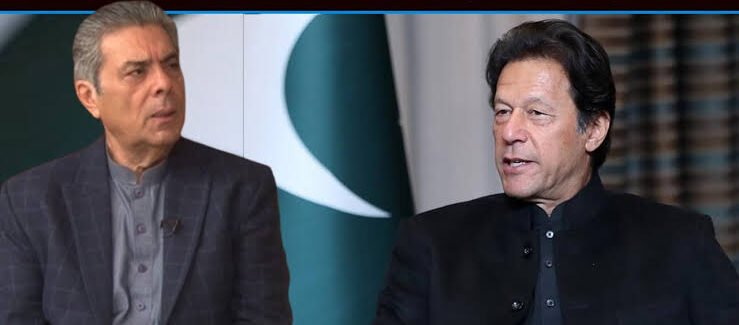
In the high-profile £190 million case, Bahria Town Chairman Malik Riaz faced allegations of bribing Imran Khan by donating over 400 kanals of land for the Al-Qadir Trust University. However, an accountability court has so far only declared him a fugitive. Legal experts suggest Malik Riaz’s trial will commence only if he returns to Pakistan, while his associates argue that no case is legally tenable against him.
The Islamabad Accountability Court recently sentenced former Prime Minister Imran Khan to 14 years in prison and a fine of PKR 1 million, while his wife Bushra Bibi received 7 years in jail and a fine of PKR 500,000. Malik Riaz, his son Ali Riaz, PTI leaders Shahzad Akbar, Zulfi Bukhari, Ziaul Mustafa Naseem, and Farhat Shahzadi were declared absconders, with their movable and immovable properties ordered to be confiscated. The court issued permanent arrest warrants for these individuals and directed the federal government to take control of the Al-Qadir Trust property and university.
NAB’s Findings
The National Accountability Bureau (NAB) investigation revealed that Malik Riaz allegedly gifted 458 kanals of land in Sohawa, Jhelum, to the Al-Qadir Trust University, benefiting Imran Khan by approximately PKR 50 billion. This amount stemmed from £190 million seized by the UK’s National Crime Agency (NCA) from Malik Riaz, which was repatriated to Pakistan. However, under Imran Khan’s orders, this money allegedly bypassed the national treasury and was instead deposited in a Supreme Court account related to Bahria Town Karachi’s PKR 460 billion fine.
Former NAB prosecutor Imran Shafiq opined that Malik Riaz avoided conviction due to his fugitive status. The court issued perpetual warrants and ordered asset confiscation. Should Malik Riaz return to Pakistan, he would face immediate arrest, restarting the trial process. Shafiq noted, however, that Malik Riaz is not directly implicated as he held no public office, unlike the principal accused—Imran Khan, Shahzad Akbar, and Zulfi Bukhari. He added that Malik Riaz’s role is primarily linked to the transfer of funds into a court account, raising doubts about his culpability.
Senior court reporter Malik Asad echoed these views, stating that the case against Malik Riaz has been shelved, pending his return. While NAB laws permit trials in absentia, such proceedings are often inefficient as trials must restart if the accused eventually appears.
The Path Ahead
Legal expert Hassan Raza Pasha, Chairman of the Pakistan Bar Council’s Executive Committee, argued that Malik Riaz’s absence complicates matters. Under Section 512 of the law, an absentia trial could proceed, but it remains less effective. Malik Riaz’s assets under his name will be confiscated, but those registered under others will not. Pasha suggested issuing red warrants to extradite Malik Riaz if Pakistan has an extradition treaty with his host country.
The legal fate of Malik Riaz hinges on his return to Pakistan, where he could face trial and potential conviction. Meanwhile, Imran Khan and Bushra Bibi’s sentences underscore the accountability court’s determination to address alleged corruption tied to the Al-Qadir Trust.








